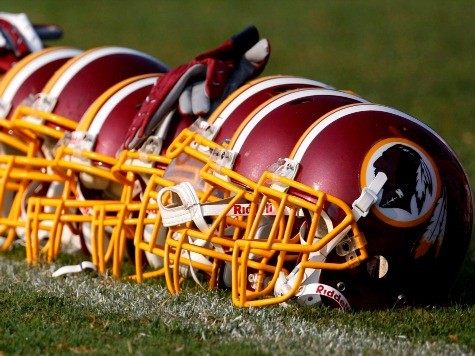On Wednesday, Judge Gerald Bruce Lee dealt the Washington Redskins another blow in the team’s battle to retain its nickname, canceling the team’s federal trademark registration.
The Northern Virginia federal judge upheld in his 70-page decision a 2-1 decision by the Trademark Trial and Appeal Board from 2014. That decision stated that the nickname “Redskins” offended Native Americans, thus making it ineligible for federal trademark status because it violated the Lanham Act.
The Lanham Act, enacted in 1946, “protects the owner of a federally registered mark against the use of similar marks if such use is likely to result in consumer confusion, or if the dilution of a famous mark is likely to occur,” according to the Legal Information Institute of Cornell University. According to the Washington Post, the Lanham Act “bars protection for names that ‘may disparage’ or bring people into contempt or disrepute.”
The 2014 ruling from the Appeal Board came in response to a petition from five Native American activists, including Amanda Blackhorse, a veteran opponent of the nickname. Lee’s affirmation of the 2014 ruling frustrated the Redskins’ attempt to overturn the 2014 decision, asserting that the Lanham Act infringed on the team’s First Amendment rights. The team additionally pointed to its registrations of its trademark in the name in 1967, 1974, 1978, and 1990.
The Redskins asserted that in removing the team’s trademark registration, U.S. patent officials had left the team “without just compensation” because of the millions of dollars the team has spent in the trademark’s use, promotion, and protection. The team noted that the worth of the Redskins increased exponentially from $741 million in 2000 to $2.4 billion by August 2014 while its brand management was estimated at $214 million. The Redskins also cited a 1977 Thanksgiving game halftime show where hundreds of Native Americans performed as well as the fact that between 1967 and 1990 no significant protests occurred marking the numerous schools and organizations nationally bearing the nickname “Redskins.”
The Native Americans responded that the decision invalidating the team’s registration and the use of the Lanham Act to buttress its claim did not violate the First Amendment. The Native Americans pointed to a June Supreme Court ruling vindicating the state of Texas in its ban on specialty license plates that the Sons of Confederate Veterans wanted emblazoned with the Confederate flag. SCOTUS ruled that Texas was not required to issue the license plates if the message offended.

COMMENTS
Please let us know if you're having issues with commenting.